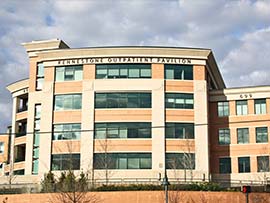Ovarian Cysts
 Ovarian cysts are fluid-filled sacs within or on the surface of an ovary. The ovaries – women have two – are located on each side of the uterus. Each month eggs develop and mature in the ovaries and are released during menstruation during the childbearing years. Many women have ovarian cysts without them being aware that they have them. Most ovarian cysts present no problems or issues and there is little discomfort to go along with them. In fact, most ovarian cysts are harmless and disappear without any treatment. However, for some women, ovarian cysts can be extremely painful and can greatly affect their quality of life.
Ovarian cysts are fluid-filled sacs within or on the surface of an ovary. The ovaries – women have two – are located on each side of the uterus. Each month eggs develop and mature in the ovaries and are released during menstruation during the childbearing years. Many women have ovarian cysts without them being aware that they have them. Most ovarian cysts present no problems or issues and there is little discomfort to go along with them. In fact, most ovarian cysts are harmless and disappear without any treatment. However, for some women, ovarian cysts can be extremely painful and can greatly affect their quality of life.
While the ovaries are very small (about the size and shape of an almond), ovarian cysts can grow quite large in some women. Large ovarian cysts can be felt and seen through the lower abdominal region. Large ovarian cysts can cause discomfort throughout the month, can press on the bladder causing frequent urination, and rupture of large ovarian cysts can cause excruciating pelvic pain and produce serious symptoms. Ovarian cysts can also cause severe pelvic pain shortly before your period begins, pain during intercourse, and symptoms that are common to pregnancy: nausea, vomiting, and breast tenderness. It is important to discuss these symptoms with your OBGYN. Many women have been rushed to the emergency room in fear that their appendix has ruptured only to learn that their unbearable pain was from the rupture of an ovarian cyst.
There are different types of cysts that develop on the ovaries, and the most common types are related to the normal function of the menstrual cycle. Medications, such as Clomid to induce ovulation, increase the risk of ovarian cysts developing. However, these cysts do not prevent or threaten a pregnancy, rarely cause pain, and typically disappear on their own within two or three menstrual cycles.
Even though most types of ovarian cysts are harmless and do not produce symptoms, it is always important that women have regular pelvic exams. Doctors may find a cyst during a pelvic exam, and it is always important to know what you are dealing with in case complications arise. A cyst that ruptures can cause severe pain and lead to internal bleeding, and a cystic ovarian mass found after menopause may be cancerous.
At Marietta OB-GYN Affiliates, P.A. we are here for all of our patients to provide the most outstanding and sensitive women’s health care. We provide a full range of gynecologic services, and we are the trusted and experienced OB-GYN in Marietta. If you are looking for a group of experienced and caring gynecologists that you can trust to provide care for you or a family member, call Marietta OB-GYN Affiliates, P.A. today.


